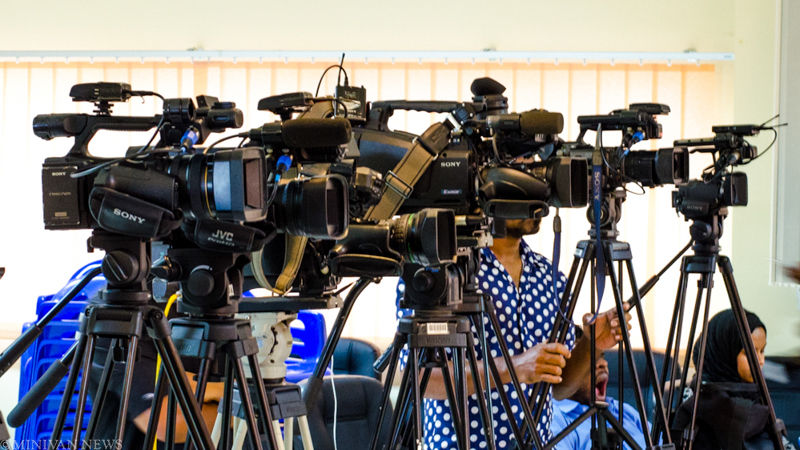Maldivians who assisted deported German crew under fire
Home Minister Umar Naseer has pledged to prosecute all Maldivians who assisted a German TV crew who were deported while filming for a story on Islamic extremism. ARD’s local fixer was summoned for questioning on Sunday.

21 Dec 2015, 09:00
A Maldivian who assisted a German TV crew who were deported last week while filming for a story on Islamic extremism was summoned to the police headquarters in Malé over allegations of economic sabotage.
The four-member crew from Germany’s ARD TV, the world’s second largest broadcaster, was deported on a charge of violating immigration laws. The crew, who have denied the charge, was subsequently accused of defaming the Maldives with a false report on Islamic extremism.
Home Minister Umar Naseer has now pledged to prosecute all Maldivians who assisted the ARD crew.
Thayyib Shameem, the crew’s local fixer, said he was summoned at 11:30am on Sunday.
Become a member
Get full access to our archive and personalise your experience.
Already a member?
Discussion
No comments yet. Be the first to share your thoughts!
No comments yet. Be the first to join the conversation!
Join the Conversation
Sign in to share your thoughts under an alias and take part in the discussion. Independent journalism thrives on open, respectful debate — your voice matters.




